George Diaz, Memorial Healthcare Systems, United States
Introduction/Objective: Primary Angiitis of the Central Nervous System (PACNS) is rare and causes inflammation of the small and medium vessels of the brain, leptomeninges and spinal cord. We present a case of PACNS, demonstrate the diagnostic challenges, and appreciate outco [....] » Read More











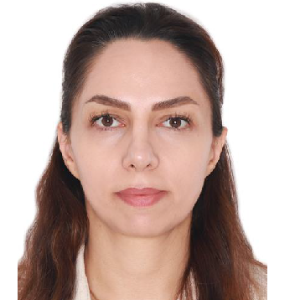























![Narrative medicine: A communication therapy for the communication disorder of Functional Seizures (FS) [also known as Psychogenic Non-Epileptic Seizures (PNES)] Speaker at Neurology Conferences - Robert B Slocum](https://neurologycongress.com/uploads/speakers/robert-b-slocum-8630.jpg)


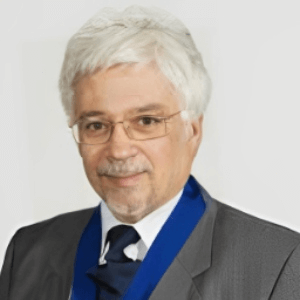


















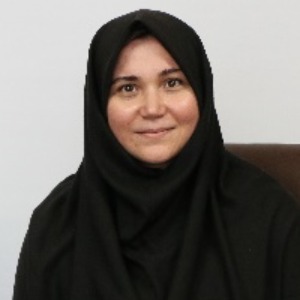




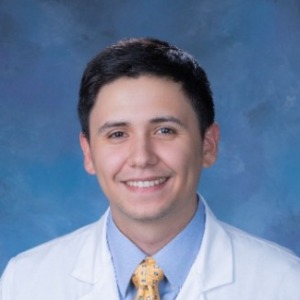



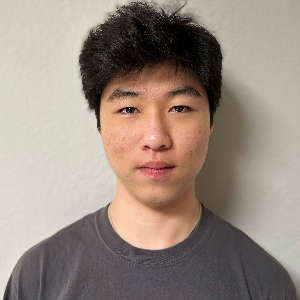


















Title : Novel important cellular responses, signaling mechanisms and therapeutic options in vascular dementia
Yong Xiao Wang, Albany Medical College, United States
Vascular contributions to cognitive impairment and dementia (VCID) have high morbidity and mortality, and diabetes is a leading factor for VCID. The signaling mechanisms for diabetes-induced VCID are largely unknown, and the current treatments for VCID are neither very specific n [....] » Read More
Title : Cervical stenosis-induced chronic cerebrospinal fluid flow restriction as a contributing cause of dementia
Joe Sam Robinson, Mercer University, United States
Statement of the Problem: Obvious CSF flow obstruction is a well-established cause of acute and subacute dementia, as well as a host of other neurological dysfunction processes. Unfortunately, the less-obvious vagaries of CSF production and absorption remain relatively unexplored [....] » Read More
Title : ACE-dependent Alzheimer’s Disease (AD)
Sergei M Danilov, University of Illinois, United States
An analysis of 1200+ existing missense ACE mutations revealed that more than 400 mutations are predicted to be damaging and led us to hypothesize that heterozygous carriers of these loss-of-function (LoF) ACE mutations (which result in low ACE levels) may be at risk for the [....] » Read More
Title : Alzheimer's disease counteracted by intravenous antioxidants biosupplements administration
Juan Moreira, Centro Neurointegrativo Gnosis, Puerto Rico
Background: Alzheimer’s disease is the most common form of dementia, accounting for 60% to 70% of cases. (1) Current research indicates that oxidative stress is the principal cause of pathology linked to Alzheimer’s disease. (2-6) Neuronal degeneration in this disorde [....] » Read More
Title : Dietary methanol as a factor in seizures, mood disorders and Autism
Ralph G Walton MD, Northeastern Ohio Medical University, United States
The artificial sweetener aspartame (L-aspartyl L-phenylalanine methyl ester) is a significant dietary source of methanol, a known neuro-toxic agent. Aspartame alone can almost double rat brain phenylalanine levels, while aspartame-carbohydrate combinations can raise brain t [....] » Read More
Title : Challenges in translating science into medicine in the field of brain health
Younok Dumortier Shin, ALAIRED LLC, United States
From dementia to depression to pain, neurological diseases affect almost everyone at some point in our lives. The medical research has advanced tremendously, thanks to the advanced technologies such as high-resolution imaging systems, genetic diagnostic tools, and high-throughput [....] » Read More
Title : Association between race and cognitive decline in older adults in the United States and Puerto Rico
Hamna Khuld, Columbia University, United States
Background: Cognitive decline and Alzheimer’s disease are major public health concerns among older adults in the U.S. and Puerto Rico. Racial and ethnic disparities in cognitive health outcomes highlight the need for a better understanding of these differences. Methods: [....] » Read More
Title : Deciphering astrocytic responses to alcohol in the striatum through combined manual and deep learning methods
Evalds Viguls, University of Chicago, United States
Astrocytes, as key components of the neurovascular unit, play a significant role in maintaining blood-brain barrier (BBB), regulating neurotransmitter homeostasis, and modulating neuroimmune signaling. Changes in astrocyte density can influence the stability and permeability of t [....] » Read More
Title : Neuroplasticity in motion: Innovative occupational therapy interventions for neurological rehabilitation
Jessica Marchant, Texas Woman's University, United States
Neurological disorders often lead to functional impairments, but advancements in neuroscience have demonstrated the brain’s ability to adapt and reorganize. This presentation explores the intersection of occupational therapy and neuroplasticity, focusing on task-specific tr [....] » Read More
Title : Environmental factors mimicking shunt malfunction symptoms in pediatric hydrocephalus: A hidden driver of unnecessary hospital encounters
Daniel Curry, Texas Children’s Hospital, United States
Background: Hydrocephalus is a common and lifelong neurological condition in children, most often managed by cerebrospinal fluid (CSF) shunt systems. Due to the potentially life-threatening consequences of shunt failure, even subtle symptoms such as headache, vomiting, or letharg [....] » Read More
Title : Outcomes and prognostic factors of surgical decompression in neurological foot drop: A systematic review and meta-analysis.
Abbas Khizar Khoja, University of Nottingham, United Kingdom
Objective: To evaluate the outcomes of surgical decompression and determine the factors predicting post-operative motor recovery in patients with unilateral footdrop and to propose a critical time frame for operative management. Design: Systematic review and meta-analysis (usi [....] » Read More
Title : An audit on the assessment and management of osteoporosis in a parkinson’s and related diseases clinic in Australia
Nethmi Nuwanji Amarasekera, Imperial College London, United Kingdom
Osteoporosis is characterised by low bone mineral density and is associated with minimal trauma fractures. Patients with Parkinson’s disease (PD) and atypical parkinsonian syndromes are at increased risk of falls and should be actively screened and treated for osteoporosis. [....] » Read More
Title : A case of probable Progressive Supranuclear Palsy Frontal type (PSP-F) presenting as psychosis
Ala Bashir, Worcestershire Acute Hospitals NHS Trust, United Kingdom
Background: Progressive supranuclear palsy (PSP) is the second most common parkinsonian disorder after idiopathic Parkinson’s disease; yet, it remains frequently misdiagnosed, with only 4,000 confirmed cases reported in the UK by the PSP Association .While neuropsychiatric [....] » Read More
Title : Towards a developmental theory of oscillatory transitions: From theta to beta in subcortico-frontal loops through the lens of ADHD
Aoun Sebaiti Mehdi, Néocortex Institute, France
Brain oscillations evolve dynamically throughout childhood as part of neurodevelopmental maturation. Among these, the transition from dominant theta activity (4–8 Hz) to beta rhythms (12–20 Hz) in frontal and subcortical circuits reflects an increasing demand for cogn [....] » Read More
Title : Clinical efficacy analysis of implantable VNS stimulation rehabilitation therapy for the patients with hemiplegia after ischemic stroke
Dawei Zang, Capital Medical University, China
Purpose: Currently there are no effective rehabilitation therapies for the upper limb movement disorders of the patients after ischemic stroke in clinical; it is difficult for these patients to return to society and work. Implantable VNS (Vagus Nerve Stimulation?VNS) is widely us [....] » Read More
Title : Tai chi-induced exosomal LRP1 is associated with memory function and hippocampal plasticity in aMCI patients
Miaoran Lin, Fujian Medical University, China
Aims: The study was designed to identify the potential peripheral processes of circulating exosome in response to Tai Chi (TC) exercise and the possibility of its loaded cargos in mediating the effects of TC training on cognitive function among older adults with amnestic mild cog [....] » Read More
Title : STING is significantly increased in high-grade glioma with high risk of recurrence
Qingyuan Yang, Shanghai Jiao Tong University School of Medicine, China
To our knowledge, the potential relationships among the frequently mutated genes, well-known homologous recombination repair (HRR) proteins, and immune proteins in glioma from a clinical perspective have not been explored. Here, a total of 126 surgical tissues from patients initi [....] » Read More
Title : Safety, tolerability and efficacy of ALMB-0166 in the patients with acute Spine Cord Injury (SCI): A multicenter, randomized, placebo-controlled, phase I/II study
Jinqian Liang, Peking Union Medical College Hospital, China
Introduction: There are currently significant unmet medical needs for therapies that improve the recovery of neurological function after suffering a severe SCI. ALMB-0166 is a first-in-class humanized monoclonal IgG antibody that block connexin-43 (Cx43) hemichannels in spinal co [....] » Read More
Title : Aspartame-induced cognitive dysfunction: Unveiling role of microglia-mediated neuroinflammation and molecular
Waseem Dar, Shiv Nadar University, India
Aspartame, an artificial sweetener, is consumed by millions of people globally. There are multiple reports of aspartame and its metabolites affecting cognitive functions in animal models and humans, which include learning problems, headaches, seizures, migraines, irritable moods, [....] » Read More
Title : Exogenous CGRP mitigates neuroinflammation and cognitive impairment in sepsis- associated encephalopathy via regulating C-Jun N-terminal kinase
Harshita Singh, Central University of Punjab, India
During sepsis, the CNS is particularly vulnerable to injury mediated by inflammatory and oxidative processes, which can cause sepsis-associated encephalopathy (SAE), a diffuse brain impairment. Sepsis-induced pathological consequences lead to short and long-term neurobehavioural [....] » Read More
Title : AI based brain computer interface for detecting neurological disorders using EEG signals
T Kishore Kumar, National Institute of Technology, India
Neurological disorders like epilepsy, Parkinson's, Alzheimer's, and stroke affect millions of people around the world. These disorders are especially hard to treat in rural places where people don't have easy access to specialized medical care. Traditional diagnostic [....] » Read More
Title : The effects of cognitive behavioral therapy with biofeedback therapy on the quality of life, anxiety, depression and somatic symptoms in patients with dyssynergic defecation: A randomized controlled trial
Afsaneh Nikjooy, Iran University of Medical Sciences, Iran (Islamic Republic of)
Background and Objectives: Dyssynergic defecation (DD) is a major cause of chronic functional constipation. Patients with DD have greater psychological distress and an impaired health-related quality of life compared with the general population. This study aimed to evaluate the e [....] » Read More
Title : The effect of stress on cognitive functions of the brain
Ankita Dhall, Tashkent Medical Academy, India
Actuality of the theme: Cognitive health is an important component of performing everyday activities. The cognitive function of brain includes complex attention, executive function, learning and memory, language, perceptual motor control, and social cognition. These skills togeth [....] » Read More
Title : Stroke- diagnosis and treatment methods
Shradha Kakde, MGM medical college, India
Background: Stroke is a major global health burden, representing a leading cause of death and long-term disability. Rapid diagnosis and effective intervention are critical to improving patient outcomes. Objective: This abstract aims to provide an updated overview of current di [....] » Read More
Title : The role of local spindles in memory consolidation
Yavuz Durmaz, Virginia Tech Carilion School of Medicine, United States
Background: Strong evidence shows that sleep beneficially impacts memory, but how this benefit is produced within the brain’s neuronal networks remains unclear. Recently, local spindles have been distinguished from global spindles. Local spindle interactions with global spi [....] » Read More
Title : A case of AQP4-MOG double-positive neuromyelitis optica spectrum disorder
Sarah Butler, Monash University, Australia
Neuromyelitis optica spectrum disorder (NMOSD) is an immune-mediated disorder of the central nervous system (CNS) characterized by frequent involvement of the optic nerves and spinal cord. Autoantibodies against aquaporin-4 channels on astrocytes (Anti-AQP4) are the hallmark of t [....] » Read More
Title : Improvement of brain function by wasabi component “hexaraphane”
Isao Okunishi, Kinjirushi Co., Ltd, Japan
Hexaraphane (6-methylsulfinylhexyl isothiocyanate; 6-MSITC) is an isothiocyanate present in the rhizomes and roots of Wasabi (Eutrema japonicum (Miq.) Kiudz.). Here we present the results of two clinical trials conducted on healthy subjects and patients with chronic fatigue syndr [....] » Read More
Title : Evaluating factor levels of fibrinogen, D-Dimer, and hs-CRP in serum or plasma of patients with ischemic or hemorrhagic stoke
Huiqing Hou, Capital Medical University, China
Purpose: Elevated levels of fibrinogen, D-Dimer, and High-sensitivity C-reactive Protein (hs-CRP) have been observed previously in the serum or plasma of patients with stroke, but the associations of these inflammatory cytokines with cognitive impairment after stroke are still [....] » Read More
Title : Chorea-hyperglycemia basal ganglia syndrome in a 66-year-old female with uncontrolled type 2 diabetes mellitus: A case report
Al Jamil M Zacaria, Cotabato Regional and Medical Center, Philippines
Introduction. Brain is highly vulnerable to damage from a range of metabolic disorders. Chorea-Hyperglycemia Basal Ganglia Syndrome is a rare and poorly recognized entity that manifests as hyperkinetic movement disorder in a setting of uncontrolled diabetes mellitus. Strict contr [....] » Read More
Title : A twist in diagnosis: A young woman’s journey from psychiatric symptoms to anti-NMDAR encephalitis with treatment challenges – A case report
Cristal Liriano, Pontificia Universidad Catolica Madre y Maestra, Dominican Republic
Background: Autoimmune encephalitis (AE) is an immune mediated condition that affects the central nervous system. It is often characterized by a paraneoplastic inflammatory process involving the limbic structures, although non-paraneoplastic cases with extra-limbic involvement ha [....] » Read More
Title : Elementary school teachers’ knowledge and attitude towards attention deficit hyperactivity disorder: A multi-institutional study, Ethiopia
Daniel Ayelegne Gebeyehu, University of Gondar, Ethiopia
Background: A child suffering from attention deficit hyperactivity disorder (ADHD) faces many difficulties in social as well as academic performances. School teachers’ knowledge and attitude towards ADHD play a vital role in early detection and referral of the child to tr [....] » Read More